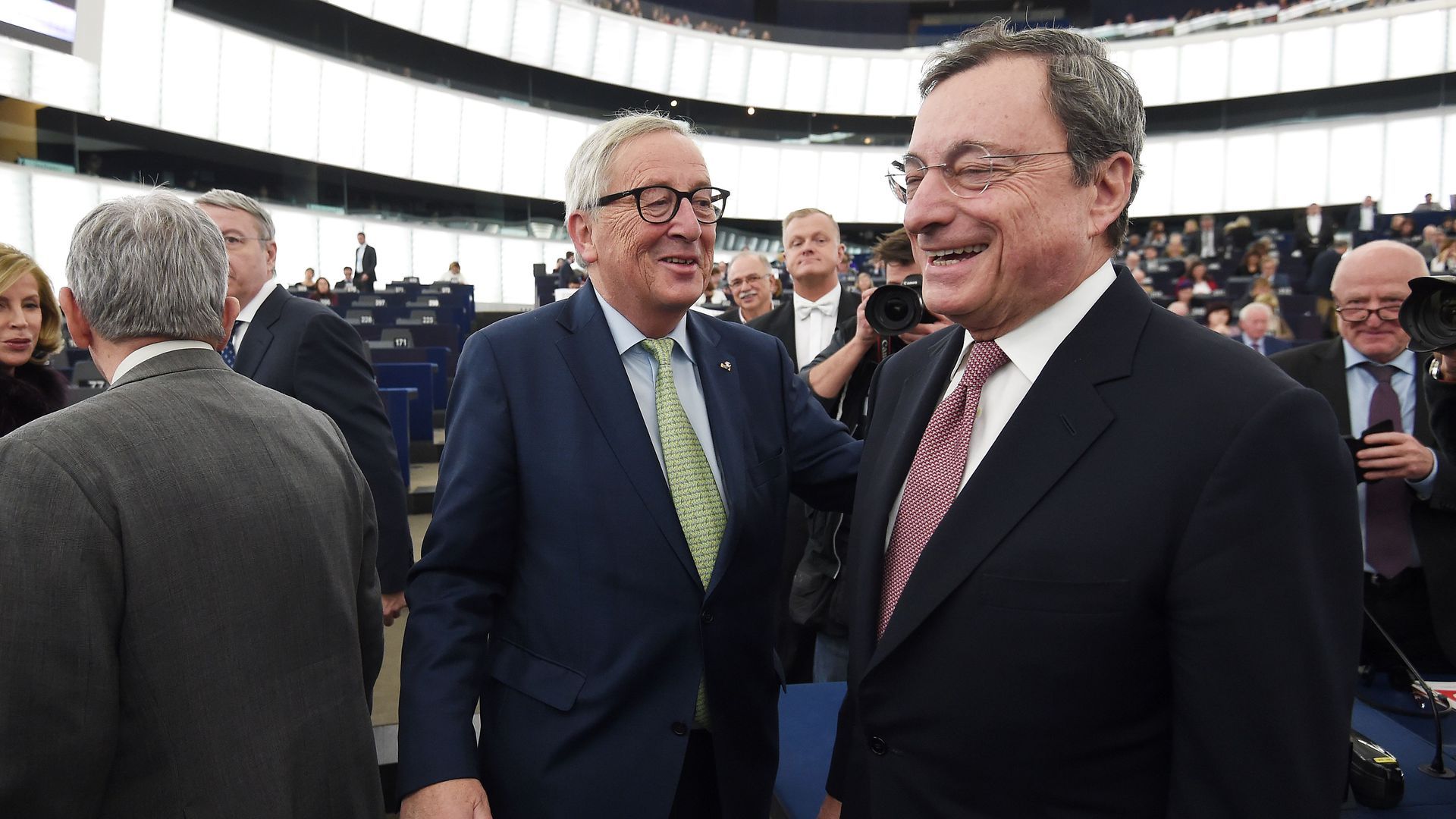Jan 16, 2019 - Economy
More stimulus could be on its way to the euro zone
Add Axios as your preferred source to
see more of our stories on Google.

European Commission President Jean-Claude Juncker (L) and President of the European Central Bank Mario Draghi. Photo: Frederick Florin/AFP/Getty Images
